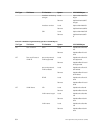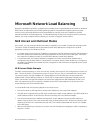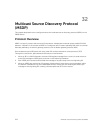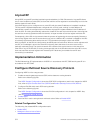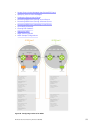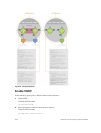
Anycast RP
Using MSDP, anycast RP provides load sharing and redundancy in PIM-SM networks. Anycast RP allows
two or more rendezvous points (RPs) to share the load for source registration and the ability to act as hot
backup routers for each other.
Anycast RP allows you to configure two or more RPs with the same IP address on Loopback interfaces.
The Anycast RP Loopback address are configured with a 32-bit mask, making it a host address. All
downstream routers are configured to know that the Anycast RP Loopback address is the IP address of
their local RP. IP routing automatically selects the closest RP for each source and receiver. Assuming that
the sources are evenly spaced around the network, an equal number of sources register with each RP.
Consequently, all the RPs in the network share the process of registering the sources equally. Because a
source may register with one RP and receivers may join to a different RP, a method is needed for the RPs
to exchange information about active sources. This information exchange is done with MSDP.
With Anycast RP, all the RPs are configured to be MSDP peers of each other. When a source registers with
one RP, an SA message is sent to the other RPs informing them that there is an active source for a
particular multicast group. The result is that each RP is aware of the active sources in the area of the
other RPs. If any of the RPs fail, IP routing converges and one of the RPs becomes the active RP in more
than one area. New sources register with the backup RP. Receivers join toward the new RP and
connectivity is maintained.
Implementation Information
The Dell Networking OS implementation of MSDP is in accordance with RFC 3618 and Anycast RP is in
accordance with RFC 3446.
Configure Multicast Source Discovery Protocol
Configuring MSDP is a four-step process.
1. Enable an exterior gateway protocol (EGP) with at least two routing domains.
Refer to the following figures.
The MSDP Sample Configurations show the OSPF-BGP configuration used in this chapter for MSDP.
Also, refer to Open Shortest Path First (OSPFv2) and Border Gateway Protocol IPv4 (BGPv4).
2. Configure PIM-SM within each EGP routing domain.
Refer to the following figures.
The MSDP Sample Configurations show the PIM-SM configuration in this chapter for MSDP. Also,
refer to PIM Sparse-Mode (PIM-SM).
3. Enable MSDP.
4. Peer the RPs in each routing domain with each other. Refer to Enable MSDP.
Related Configuration Tasks
The following lists related MSDP configuration tasks.
• Enable MSDP
• Manage the Source-Active Cache
572
Multicast Source Discovery Protocol (MSDP)



